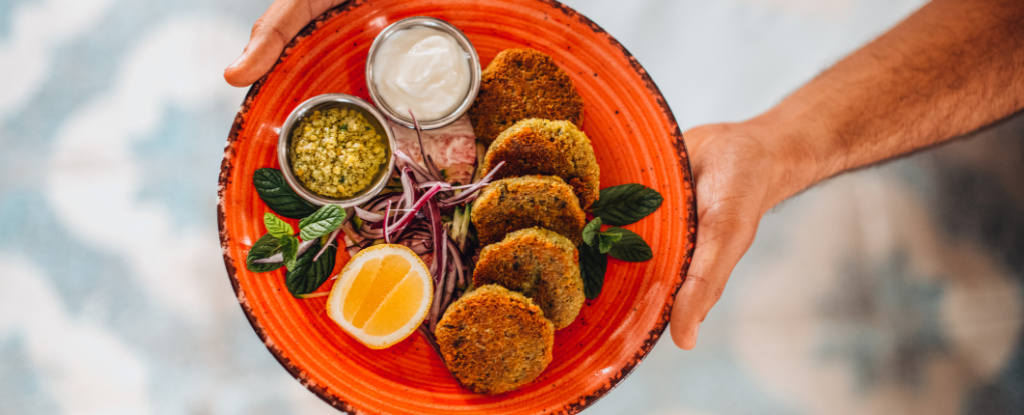With new cases of COVID-19 still in the tens of thousands per day across the globe, scientists are working hard trying to learn more about what factors put each of us at greater risk of infection.
It turns out that sticking to a vegan or vegetarian diet is associated with a 39 percent lower reduced chance of catching the virus, according to a new study involving 702 Brazilian adults carried out by researchers from the University of São Paulo in Brazil.
The data analysis isn’t strong enough to prove direct cause and effect, but it does suggest that limiting or avoiding meat and animal products may confer some protection against the SARS-CoV-2 virus. The association held even after several other health-related factors were calculated in.
“Our study provides evidence that individuals with a plant-based diet and mainly a vegetarian diet had a lower incidence of COVID-19 even after accounting for important variables like physical activity, BMI and pre-existing conditions,” write the researchers in their published paper.
Of the 702 study participants, 278 reported following a largely plant-based diet. This group said that they regularly ate more vegetables, legumes, and nuts than the other 424 volunteers, as well as fewer (or no) dairy or meat products.
A significantly higher percentage of the omnivores said that they had been infected with COVID-19: 52 percent versus 40 percent.
It’s a complex picture – the omnivore group reported engaging in less physical activity, were more likely to have existing medical conditions, and were more likely to be obese (something that we know increases risk factors for COVID-19).
The research team thinks that the general benefits that come along with a plant-based diet – including improved heart health and lower blood pressure – may also be boosting the body’s immune system and reducing the risk of infections.
“Plant-based dietary patterns are rich in antioxidants, phytosterols and polyphenols, which positively affect several cell types implicated in the immune function and exhibit direct antiviral properties,” write the researchers.
The study is backed up by previous research that linked plant-based diets to lower odds of moderate-to-severe COVID-19 infections. In a sense that’s no surprise, considering the very close links between our health and what we decide to eat.
On the back of this latest research, as well as wearing a mask in public spaces and practicing good hygiene, you might also consider switching some elements of your diet if there’s a chance it could bump down COVID-19 infection risk.
“In light of these findings and findings of other studies, and because of the importance of identifying factors that can influence the incidence of COVID-19, we recommend the practice of following plant-based diets or vegetarian dietary patterns,” write the researchers.
The research has been published in BMJ Nutrition Prevention & Health.





